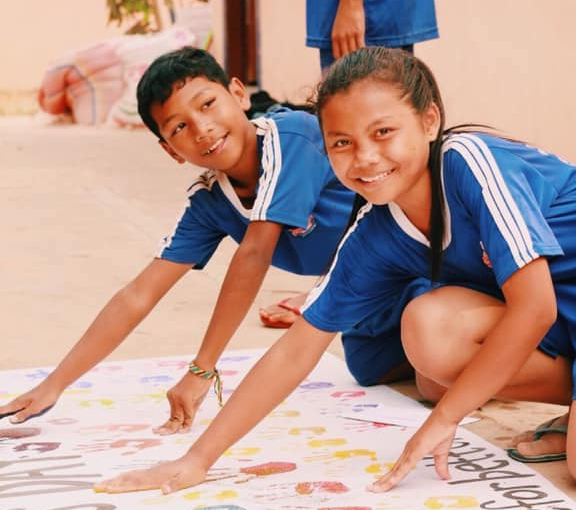
Mission
Founded by three time Olympian Tracy Evans, Kids Play International’s (KPI) mission is to promote gender equity through sport and the Olympic values in post-genocide impacted countries and build a global community in which the power of sport builds strong girls and supportive boys.
Life Challenges of the Women Served
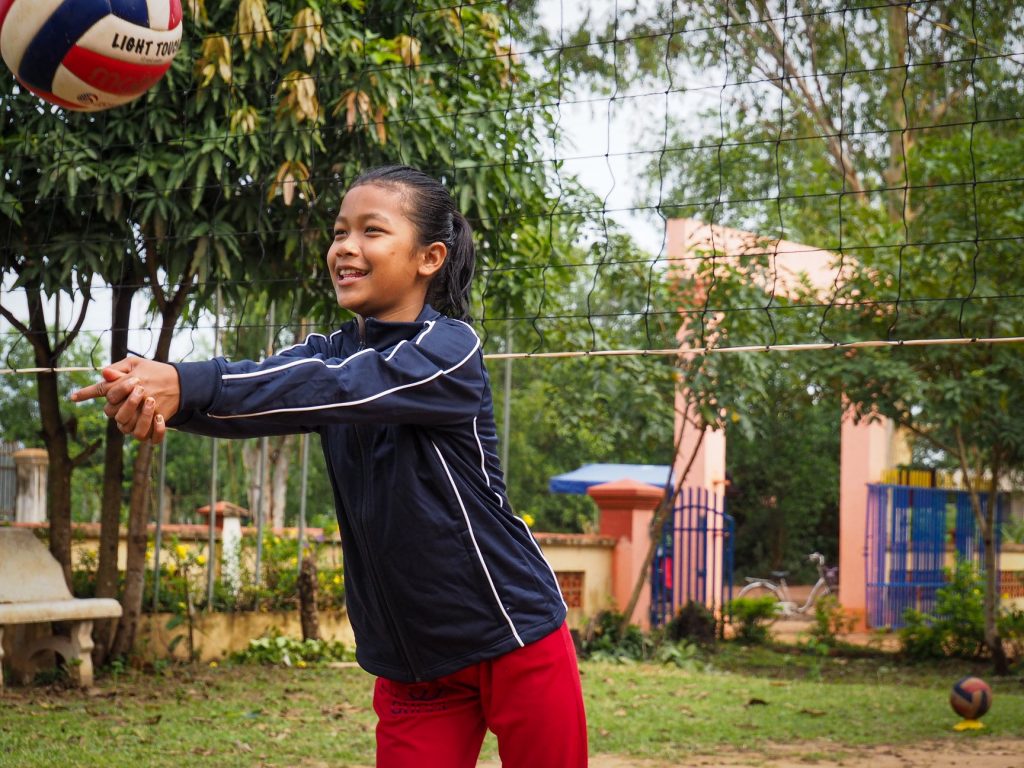 Women in Cambodia are constrained by conservative cultural norms that value women less than men, resulting in an imbalance of power between men and women that keeps women in poverty, subjects them to gender-based violence and a whole host of other inequalities. Established gender roles perpetuate the subordination of females and undermine their health, security and autonomy. Harmful stereotypes prevent girls and women from developing the leadership skills and confidence needed to lead self-authoring lives and thrive in a male-dominated culture. In addition to the typical poverty-related challenges, community members bear varying degrees of intergenerational trauma from the 1975-1979 genocide under the Khmer Rouge, which resulted in the death of nearly a quarter of Cambodia’s population.
Women in Cambodia are constrained by conservative cultural norms that value women less than men, resulting in an imbalance of power between men and women that keeps women in poverty, subjects them to gender-based violence and a whole host of other inequalities. Established gender roles perpetuate the subordination of females and undermine their health, security and autonomy. Harmful stereotypes prevent girls and women from developing the leadership skills and confidence needed to lead self-authoring lives and thrive in a male-dominated culture. In addition to the typical poverty-related challenges, community members bear varying degrees of intergenerational trauma from the 1975-1979 genocide under the Khmer Rouge, which resulted in the death of nearly a quarter of Cambodia’s population.
Pervasive gender inequality permeates all facets of women and girls’ daily lives. Impeded by gender-based violence (GBV), negative gender stereotypes, rigid domestic responsibilities, and cultural expectations, they lack access to education, reproductive health care, and participation in the country’s growing economic system. GBV is a notable problem in Cambodia, known as a source, transit, and end point for forced labor and sex trafficking, which impacts both women/girls and men/boys, but women/girls disproportionately. The US State Department considers Cambodia to be a Tier 2-Watchlist country when it comes to human trafficking. Children living in poverty are at high risk of being trafficked, and children who are not enrolled in school are at an even higher risk.
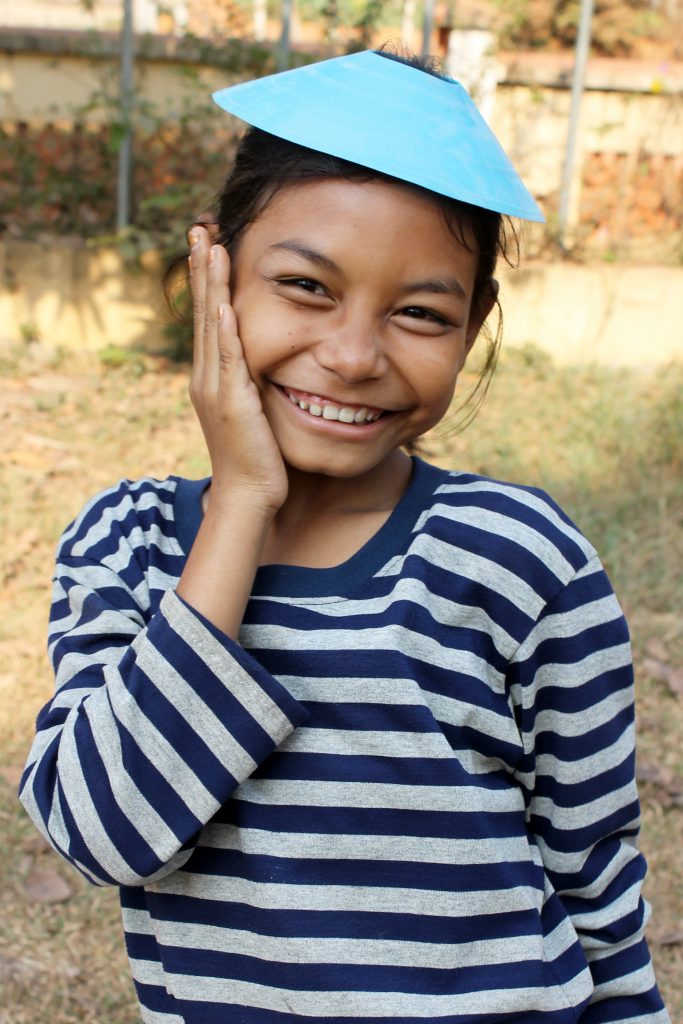 Customarily, boys are considered more important than girls in that boys can go out to work, while girls should stay at home to tend to household chores. Enduring traditional belief systems that suggest “proper” roles for men and women contribute to perpetuating gender inequity within Cambodia. Many also lack healthy coping mechanisms for the trauma from the genocide. A typical girl in Cambodia and Rwanda is far less likely than her male counterpart to finish school, gain meaningful employment, and occupy leadership positions in her community. In fact, a recent Rwanda Education Board study found that less than 5 percent of girls in rural areas from poor families completed lower secondary school.
Customarily, boys are considered more important than girls in that boys can go out to work, while girls should stay at home to tend to household chores. Enduring traditional belief systems that suggest “proper” roles for men and women contribute to perpetuating gender inequity within Cambodia. Many also lack healthy coping mechanisms for the trauma from the genocide. A typical girl in Cambodia and Rwanda is far less likely than her male counterpart to finish school, gain meaningful employment, and occupy leadership positions in her community. In fact, a recent Rwanda Education Board study found that less than 5 percent of girls in rural areas from poor families completed lower secondary school.
Gender inequality can be found in many aspects of Cambodian culture, in the labor economy, and all levels of government. In 2016, only 9 percent of Cambodian ministry-level government positions were made up of women and only a third of senior and middle management positions were held by women, a serious dearth of female leadership that trickles down to the youth who cannot envision themselves as leaders.
The Project
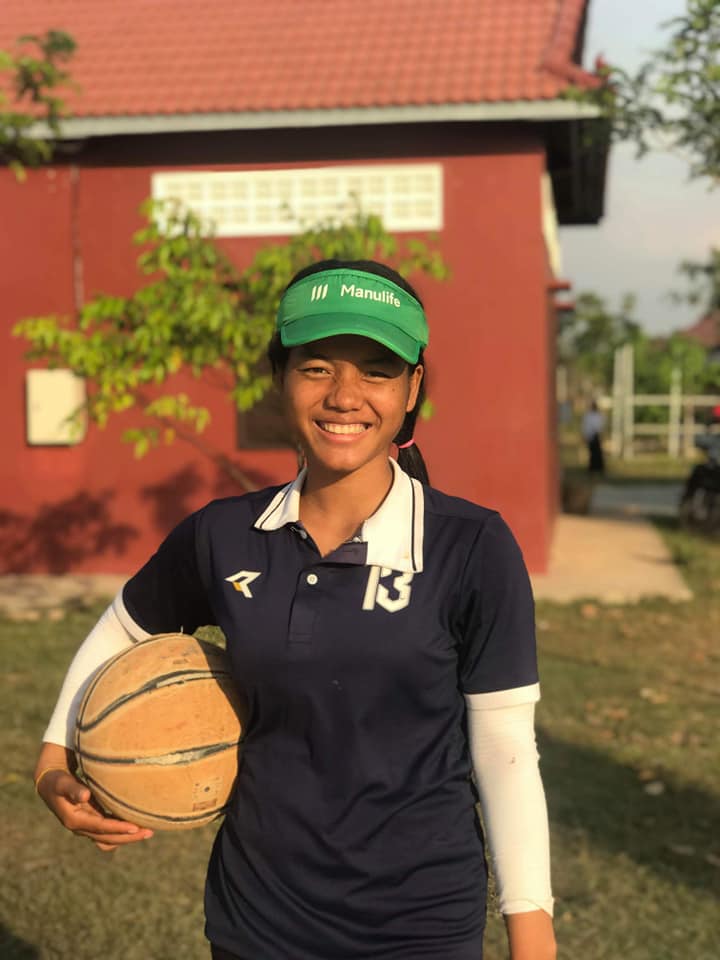 Kids Play International (KPI) seeks to improve gender equity in rural Ang Chagn Chass through sports-based education programs that reduce negative gender stereotypes, improve the leadership skills of girls and women, and shift the community toward more gender equitable beliefs and behaviors. Project activities promote women and girls and educate boys and men to be more supportive and inclusive of women and girls and ultimately to see their contributions and value. Research shows that sports are effective at empowering girls and developing supportive young boys. Sports provide a unique environment where harmful gender norms can be renegotiated. Having boys help to shift the dominant norms about gender and masculinity is key to finding a healthy gender balance.
Kids Play International (KPI) seeks to improve gender equity in rural Ang Chagn Chass through sports-based education programs that reduce negative gender stereotypes, improve the leadership skills of girls and women, and shift the community toward more gender equitable beliefs and behaviors. Project activities promote women and girls and educate boys and men to be more supportive and inclusive of women and girls and ultimately to see their contributions and value. Research shows that sports are effective at empowering girls and developing supportive young boys. Sports provide a unique environment where harmful gender norms can be renegotiated. Having boys help to shift the dominant norms about gender and masculinity is key to finding a healthy gender balance.
This project allows KPI to continue its successful weekly Let’s Play Fair program that teaches girls and boys what it means to be gender equitable through playing sports together. It also allows KPI to bolster its All Girls United program aimed specifically at female participants to give them the knowledge and skills to be more confident and self-sufficient, as well as give them leadership opportunities to actually apply the knowledge and skills they learn. Finally, by providing Play Fair Inclusion workshops and training female coaches and All Girls United girls to facilitate them, KPI takes their messages beyond the sports environment and into classrooms.
KPI’s approach includes boys and men whose issues of poverty, violence in the home, gender segregation, limited communication and emotional management skills, and intergenerational trauma prevents them from understanding and transcending the gender norms that shape their behavior. To combat this, KPI encourages boys to build positive, equitable relationships with girls and gain the knowledge, skills and perspective needed to be strong advocates of gender equity.
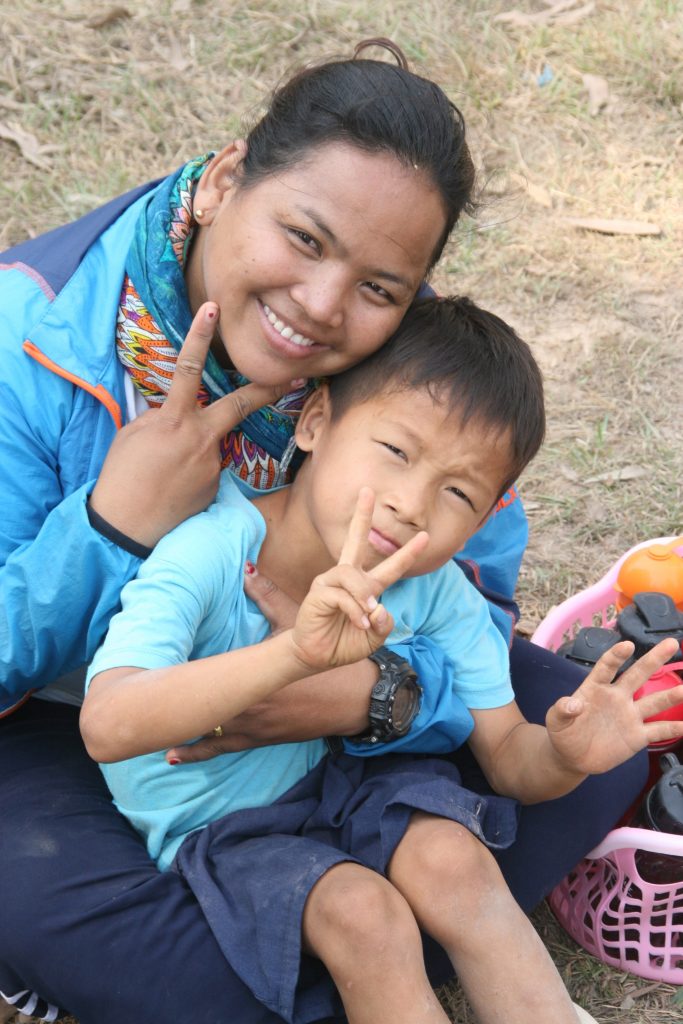 Recognizing that there are no shortcuts to behavior change, KPI works deeply within rural communities over an extended period. Youth enter the program at age 7 and stay engaged through age 18 when they graduate. This unique, long-term interaction has proven to advance leadership skills and build sustainable gender equitable behaviors in participants and the broader community. KPI’s curriculum is implemented in phases. As players get older and move through the program, the curriculum adjusts and becomes more complex. The older players delve into deeper conversations and activities around themes that push and improve their abilities and skills to not only become more gender equitable humans but to acquire the necessary tools to help them in both their professional and personal development. KPI’s program activities methodically encourage both girls and boys to challenge harmful gender stereotypes: helping to create supportive boys and empower girls to find their voices in order to transcend restrictive conceptions of femininity, becoming confident leaders and self-advocates, and ultimately attaining better educational, employment, and healthy living outcomes.
Recognizing that there are no shortcuts to behavior change, KPI works deeply within rural communities over an extended period. Youth enter the program at age 7 and stay engaged through age 18 when they graduate. This unique, long-term interaction has proven to advance leadership skills and build sustainable gender equitable behaviors in participants and the broader community. KPI’s curriculum is implemented in phases. As players get older and move through the program, the curriculum adjusts and becomes more complex. The older players delve into deeper conversations and activities around themes that push and improve their abilities and skills to not only become more gender equitable humans but to acquire the necessary tools to help them in both their professional and personal development. KPI’s program activities methodically encourage both girls and boys to challenge harmful gender stereotypes: helping to create supportive boys and empower girls to find their voices in order to transcend restrictive conceptions of femininity, becoming confident leaders and self-advocates, and ultimately attaining better educational, employment, and healthy living outcomes.
KPI’s activities include:
Activity 1: Let’s Play Fair (LPF) engages 100+ girls and boys ages 7-18 four times per week over 10 years. This mixed-gender, weekly after school program uses less familiar sports to help girls and boys build better relationships and increase confidence, self-esteem, and leadership skills. LPF leverages sport and the Olympic values of Fair Play to break down gender norms and promote equality for women in all aspects of their lives, and it instills in participants the responsibility to apply what they learn in LPF to their broader lives, gradually transforming the collective culture in rural communities. KPI’s coaches, who also work as teachers, face many of the same poverty and gender-related issues as their students, including male dominated learning environments and a lack of tools to empower girls to speak up in the classroom. KPI’s ongoing coach capacity and professional development training helps these coaches/teachers gain the skills they need to overcome these barriers and serve as models of positive, adult female empowerment for players, students, and the entire community.
Activity 2: All Girls United sessions/camp (AGU) consists of monthly sessions of 40 KPI girls ages 13-18 and annual camps (plus 75 select girls from partner schools over three camps). AGU provides additional space and time to delve deeper into sexual/reproductive health, GBV, gender stereotypes, financial literacy, and education. These sessions are often created in partnership with local experts on menstrual health or GBV to give girls valuable knowledge and skills. By providing menstrual pads and education, KPI emphasizes the importance of education and reduce barriers to missing school. Female coaches help research, create, facilitate and evaluate monthly educational sessions for female players.
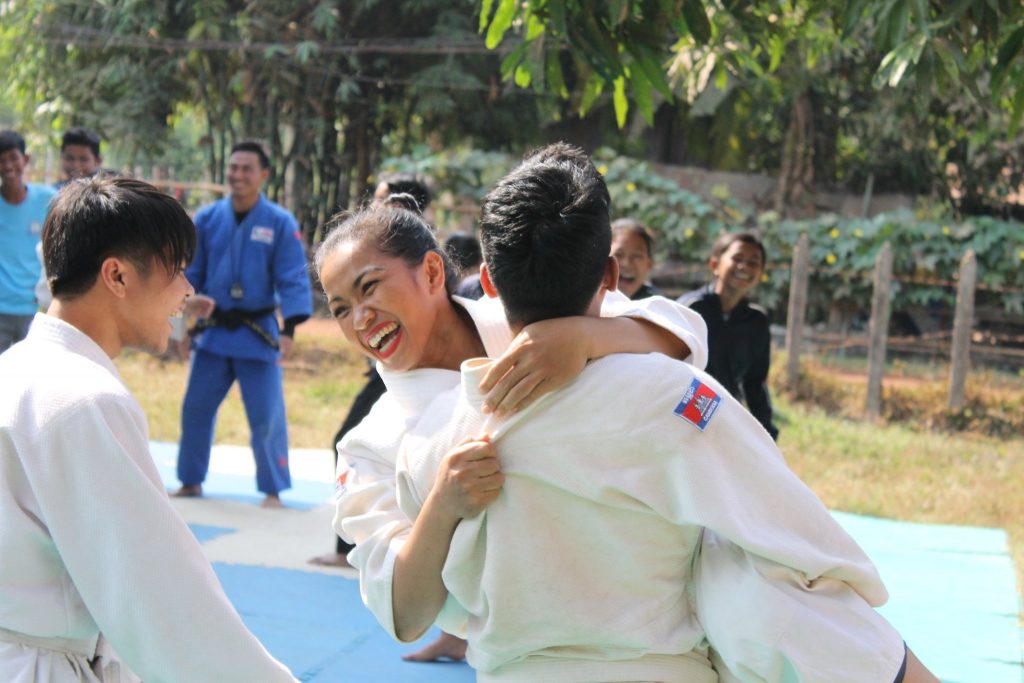 Activity 3: Play Fair Community Days (PFCD) is KPI’s weekly community day event for everyone in the village. These events bring children and adults together to play lesser-known sports while also fostering dialogue and positive social cohesion around issues of gender equity at home and in the community.
Activity 3: Play Fair Community Days (PFCD) is KPI’s weekly community day event for everyone in the village. These events bring children and adults together to play lesser-known sports while also fostering dialogue and positive social cohesion around issues of gender equity at home and in the community.
Activity 4: Play Fair Inclusion Workshop showcases KPI’s best practices and methodologies and expands KPI’s mission of shifting mindsets and behaviors to create more equitable and inclusive communities. Play Fair helps build inclusive cultures everywhere by helping coaches, parents, teachers and organization leaders build and apply the five foundational Play Fair skills: Opportunity, Respect, Contribution, Community, and Moral Courage.
KPI works closely with the Spliter School Foundation and three partner schools to carry out project activities and will engage, when needed, local NGO’s for supplemental support. KPI has aligned methodologies with Rwanda/Cambodia’s Ministry of Education and selects and trains schoolteachers to be KPI gender equity Coaches to ensure local ownership and program longevity. KPI partners closely with local schools to select our participants, keep programs close to 50-50 girls and boys, track their school attendance and grades, and coordinate extra academic support.
KPI’s goal is planned obsolescence – envisioning a community that is gender equitable, comprised of both female and male leaders, sends both girls and boys go on to higher education, and has the same graduation rate for girls and boys. In this community, violence against women is unheard of and KPI’s program is no longer needed. To get there, KPI needs to build capacity and empower their coaches to take on increased ownership of the program at higher management levels along with ongoing facilitation to share KPI’s Play Fair Inclusion workshop with other organizations, schools, and government ministries.
Year one – Direct impact: 134; Indirect impact: 800
Year two – Direct impact: 264; Indirect impact: 1,010
UN Sustainable Development Goals
![]()
![]()
Questions for Discussion
- Why do you think sports are good gender equalizers?
- How might sports play an increasingly important role within families?
- Why is it imperative that boys be included in this program?
How the Grant Will be Used
NOTE: During these unprecedented times of COVID-19, Dining for Women has adapted grant funding and offered flexibility to grantees in the timeline, budgets and execution of their projects. These adjustments will be reported in the grantee reports.
DFW’s grant of $49,775 over two years will be used for the following:
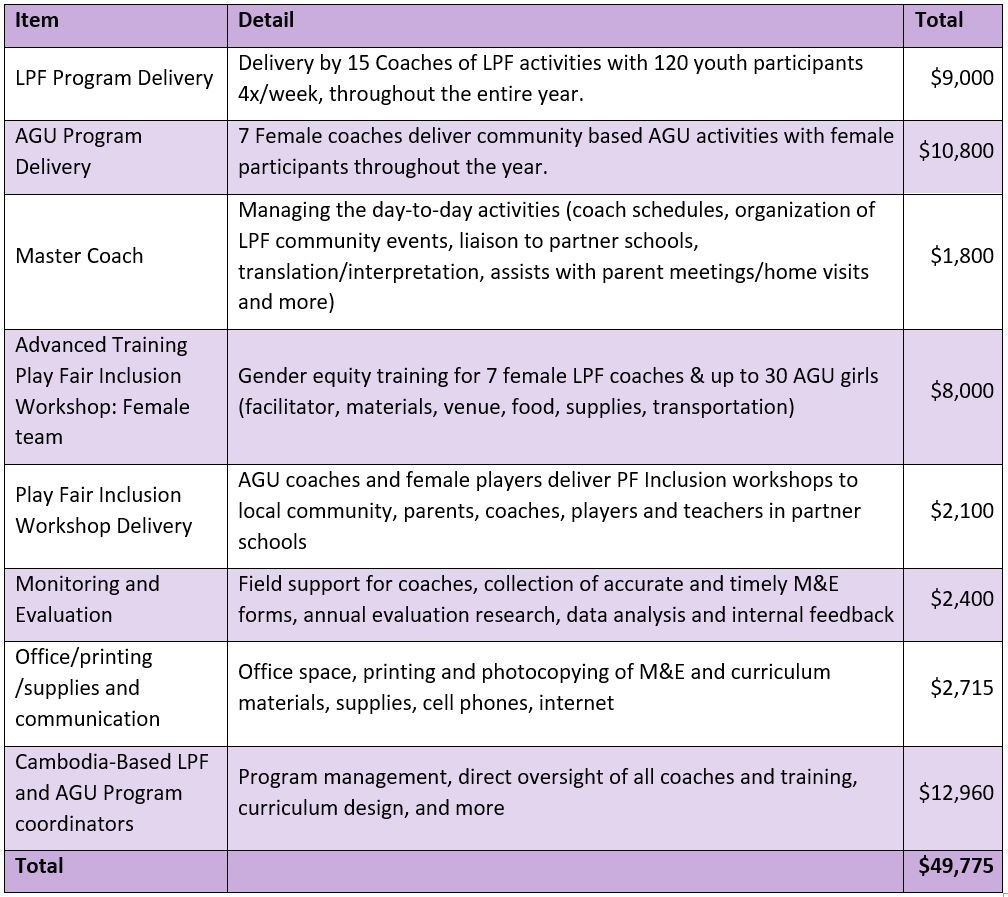
Why We Love This Project/Organization
This project uses sports and Olympic values to achieve gender equality in post-genocidal countries. Rooted in the understanding that sport can be a powerful catalyst for social change, Kids Play International proves that by empowering young girls and creating supportive boys, gender norms can be shifted towards gender equality.
Evidence of Success
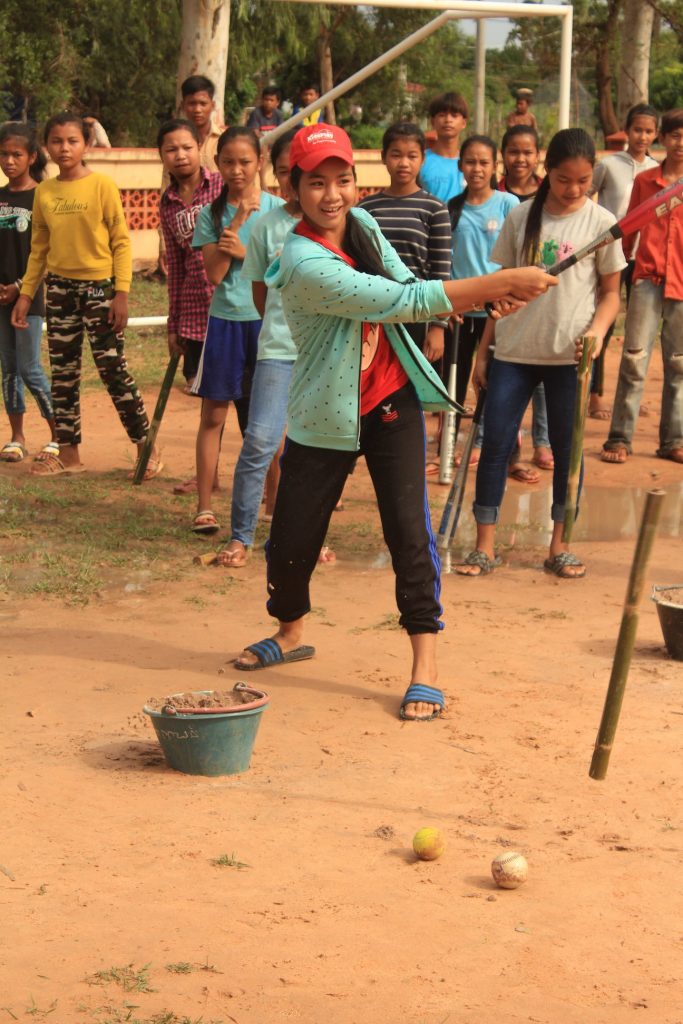 In the past 10 years, evidence from KPI’s proven LPF, AGU and PFCD models suggests that their programs help reduce negative gender stereotypes between boys and girls and improve the leadership skills of women and girls. Kids Play Rwanda (KPR) girls are showing improved self-confidence and advocacy, improved ability to build productive, equitable, opposite gender relationships, and positive educational and career outcomes. In December 2019, 98 percent of KPR girls felt confident that they can work and play with boys, and 91.2 percent agreed or strongly agreed that “A girl has the same right to make choices in a relationship as a boy.”
In the past 10 years, evidence from KPI’s proven LPF, AGU and PFCD models suggests that their programs help reduce negative gender stereotypes between boys and girls and improve the leadership skills of women and girls. Kids Play Rwanda (KPR) girls are showing improved self-confidence and advocacy, improved ability to build productive, equitable, opposite gender relationships, and positive educational and career outcomes. In December 2019, 98 percent of KPR girls felt confident that they can work and play with boys, and 91.2 percent agreed or strongly agreed that “A girl has the same right to make choices in a relationship as a boy.”
School engagement and education attainment are also a large component of KPI’s programs. They partner closely with their schools to track their player’s attendance and grades. In 2018, all KPI’s Rwandan players were ranked in the top 28 percent of their respective classes and in 2019 two of their Rwandan players graduated secondary school as the top male and female students in their class. KPR started distributing pads to their female players in 2016 and in their 2018 end of year survey, 97 percent of the girls strongly agreed or agreed with the statement “Receiving sanitary pads helps me do better in school.”
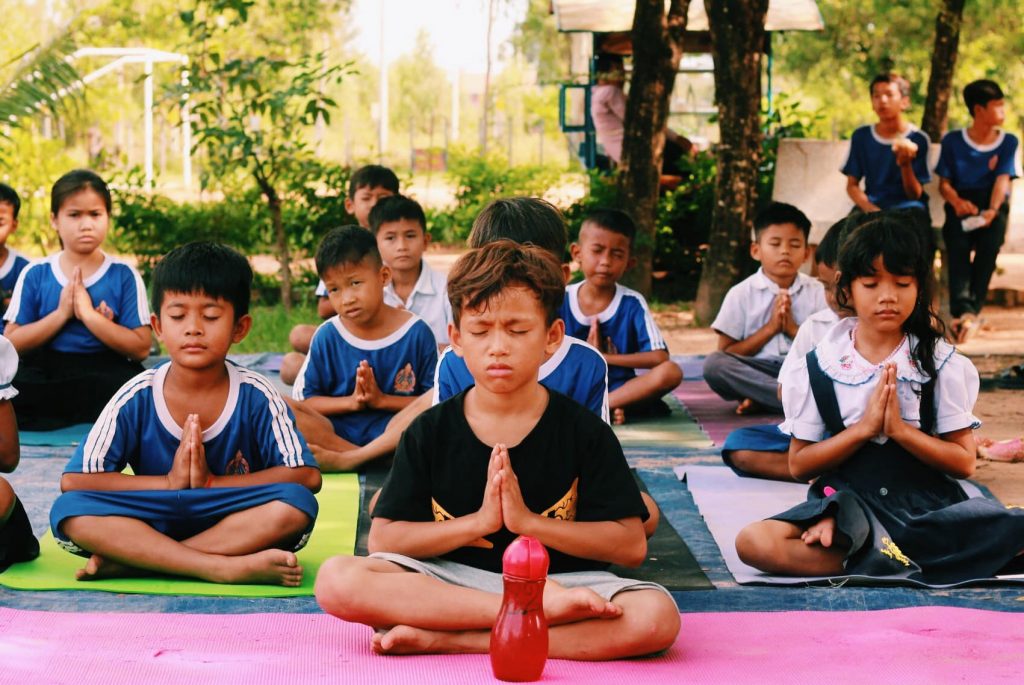 KPI trains young adults (men and women ages 20-35) to act as gender equity “coaches.” Coaches spend years working to build healthy, trusting relationships with youth, allowing the time necessary to shift deep-rooted harmful social, cultural and gender norms, beliefs and behaviors. Coaches are trained to understand how their actions, role modeling, and ability to connect to the children in our program can serve as a powerful protective factor and serve as an additional support and influence. For those most in need, the coach may be the one caring adult who can truly ‘move the child’ towards positive choices and outcomes. In August 2019, 98 percent of older players in Cambodia who were surveyed responded that they equally respect a male and female coach to teach them sports. This is compared to only 59 percent of older players responding this way when Kids Play started in the program in October of 2018.
KPI trains young adults (men and women ages 20-35) to act as gender equity “coaches.” Coaches spend years working to build healthy, trusting relationships with youth, allowing the time necessary to shift deep-rooted harmful social, cultural and gender norms, beliefs and behaviors. Coaches are trained to understand how their actions, role modeling, and ability to connect to the children in our program can serve as a powerful protective factor and serve as an additional support and influence. For those most in need, the coach may be the one caring adult who can truly ‘move the child’ towards positive choices and outcomes. In August 2019, 98 percent of older players in Cambodia who were surveyed responded that they equally respect a male and female coach to teach them sports. This is compared to only 59 percent of older players responding this way when Kids Play started in the program in October of 2018.
KPI was a finalist for the 2018 Robert Wood Johnson Foundation Sports Award, the recipient of the 2016 Gatorade for the Love of Sports Award for the Let’s Play Fair program in Rwanda. Tracy Evans was also honored to receive the Athletes in Excellence Award in 2014 and Female Athlete Philanthropist of the Year Award from United Athletes Foundation in 2011 alongside Jerry Rice.
Voices of the Girls
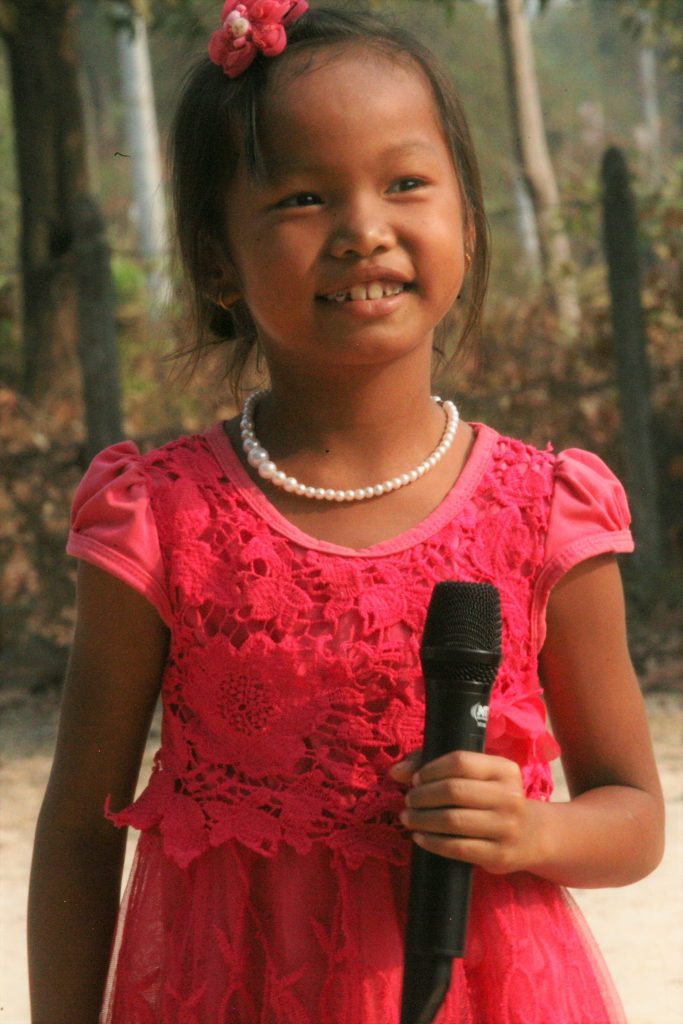 Phumzile Mlambo-Ngcuka, Under Secretary General of the UN and Executive Director of UN Women said, “Sports can be one of the great drivers of gender equality, particularly during adolescence, when the pressure to conform to traditionally ‘feminine’ stereotypes leads many girls to abandon sports entirely.”
Phumzile Mlambo-Ngcuka, Under Secretary General of the UN and Executive Director of UN Women said, “Sports can be one of the great drivers of gender equality, particularly during adolescence, when the pressure to conform to traditionally ‘feminine’ stereotypes leads many girls to abandon sports entirely.”
“I am very happy because I can play with boys, which I never knew I could. Before, I would just come to the field to play but boys and girls would all be separate. Now, I am learning how to respect others and how gender equality helps everyone be better, together.”
– Player Ly Heurng Age 7, (female)
“Sometimes my grandma will tell me I am not very smart and it makes me feel sad. But at Kids Play the coaches always make me feel confident and tell me I am a leader. They trust me to help with attendance and field set up and always encourage me to ask and answer questions.”
– Player Theara, Age 9 (female)
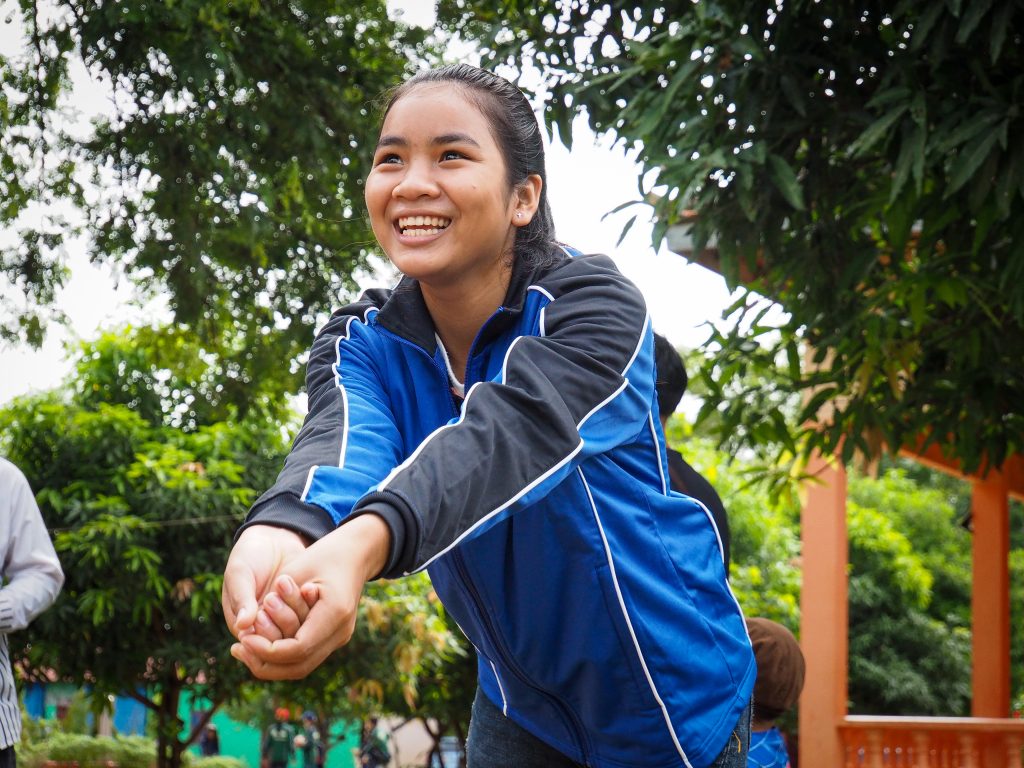
“Before, I never thought girls could play sports because most parents will not allow them to play. But Kids Play Coach Raksmey decided to start an all-girls basketball team. This was crazy to me. I do not see many men giving girls this opportunity but he even organizes us to play games against boys and treats and invests in us professionally. This makes me feel valued.”
– Player Ty Ty, Age 17 (female)
“If my male friend was talking or thinking about sexually harassing a girl, I would explain why it is wrong and how he would hurt her both physically and mentally. I would also ask him, how would he like it if that happened to his sister or daughter.”
– Brasna, Age 17 (female)
“I grew up in a family with traditional conservative values towards women. When I was only 14 years old, my dad tried to arrange for me to get married. I was so angry at him, I left home. As I kept pursuing my education and learned more about the history of Cambodia, I realized that my dad’s thinking was shaped by the genocidal regime of the Khmer Rouge. In reality, he wanted me to be safe from sexual abuse and discrimination and marriage was the solution. This is why I love working for KPI. We are able to teach girls at a young age about these dangerous social biases and patriarchal perspectives and encourage women to have a voice and stand up for themselves.”
– Coach Sophea, Age 30 (female)
“If I see a man mistreating his wife, I can go and tell my mother or even a local leader to come and help.”
– Honorine (age 8)
About the Organization
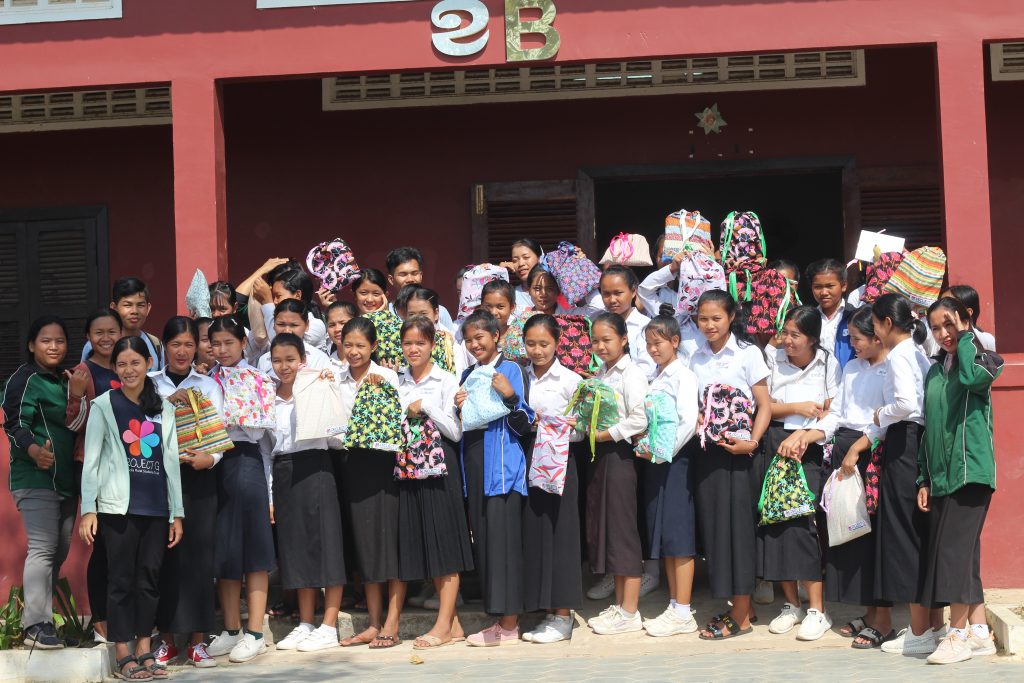 KPI reduces negative gender stereotypes between boys and girls and improves leadership skills of women and girls. Program activities methodically encourage both girls and boys to challenge harmful gender stereotypes – helping to create supportive boys and to empower girls to find their voices in order to transcend restrictive conceptions of femininity, to become confident leaders and self-advocates, and ultimately, to attain better educational, employment, and healthy living outcomes.
KPI reduces negative gender stereotypes between boys and girls and improves leadership skills of women and girls. Program activities methodically encourage both girls and boys to challenge harmful gender stereotypes – helping to create supportive boys and to empower girls to find their voices in order to transcend restrictive conceptions of femininity, to become confident leaders and self-advocates, and ultimately, to attain better educational, employment, and healthy living outcomes.
Olympian Tracy Evans launched KPI in 2008 to promote gender equity through sports in post-genocide impacted communities. In 2009, the first program site in rural Rwanda was launched. KPI was founded on the Fair Play spirit of the Olympic Movement, which champions the idea that sports should be used not just as a physical activity but also as a means of educating people. According to the International Olympic Committee, “[Sports] not only enable people to live more active and fulfilling lives, but can also teaches vital life skills and values.” Rooted in the understanding that sports can be a powerful catalyst for social change, KPI aims to empower girls and create supportive boys in order to inspire the next generation of Rwandan and Cambodian youth to positively shift gender norms and bring about sustainable gender equity.
Building on its 10 years in Rwanda, KPI launched a second program site in the rural village of Ang Chagn Chass outside of Siem Reap, Cambodia, in 2018.
As a three time Olympian (1994, 1998, 2002), Tracy Evans has distinguished herself through a lifetime of achievement, both on and off the field of play. Tracy was chosen by the International Olympic Committee as one of five Olympians (and the first US Olympian) to be recognized at the 2018 PyeongChang Olympics for their Winter edition of Olympians for Life. She also received the 2018 Rings of Gold Individual award given by the United States Olympic Committee. Both are in recognition of her great achievements as an Olympian in her sport of Freestyle Skiing as well as the work she has done after competition with Kids Play International.
Where They Work
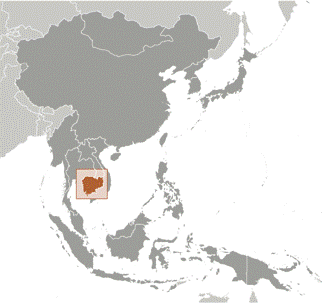
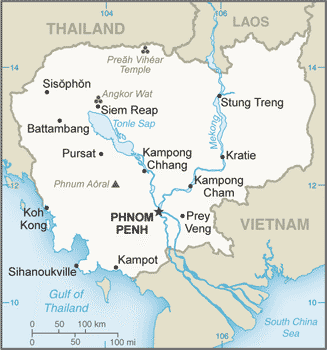
Kids Play International works in both Ang Chagn Chass, located in the Krong Siem Reap Province of Cambodia and Gatagara, located in the Southern Province of Rwanda.
Historical context: Almost four decades ago, Cambodia emerged from a long history of conflict that wreaked havoc on the population, infrastructure, and development. Prior to the 13th century, Cambodia reigned unrivaled in the region as a vast Angkor empire for centuries of dominance. However, Cambodia later endured invasions from Thai and Vietnamese neighbors, the dominance of French colonialism, and secret American bombings. These events eventually triggered the genocidal rule of the Khmer Rouge (1975-1979) that eliminated 25 percent of the Cambodian population while seeking to achieve a rural utopia of total communism. The party’s existence was kept secret until 1977, and no one outside the Khmer Rouge knew who its leaders were.
While the Khmer Rouge was in power, they set up policies that disregarded human life and repressed freedoms like education, religion, and art and conducted massacres on a massive scale. They turned the country into a huge detention center, where hundreds of thousands of educated and middle-class Cambodians were tortured and two million people were executed, including their own members and even some senior leaders.
Life in Cambodia today: After the elimination of nearly a quarter of Cambodia’s population, tens of thousands of people were made widows and orphans. Those who survived were traumatized by their experiences and several hundred thousand fled their country and became refugees. The millions of mines laid by the Khmer Rouge and government forces have led to thousands of deaths and disabilities since the 1980s. These intergenerational physical and emotional traumas are one of the major causes of the poverty that plagues Cambodia today. While present-day Cambodia has experienced more than two decades of relative stability and strong economic growth, the country still faces many challenges with poverty, education, governance, and environmental sustainability. Corruption is deep-rooted and Cambodia is still one of the world’s poorest countries, with most of the workforce still employed in subsistence farming.
(Source: Kids Play International)
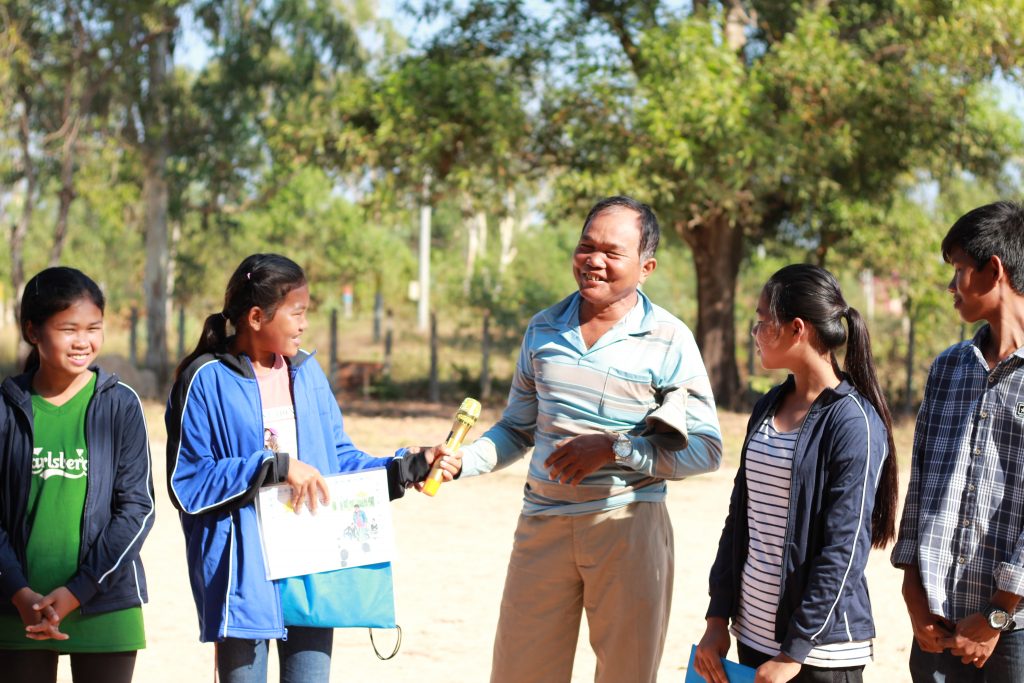 A closer look at the power of sports and behavior change
A closer look at the power of sports and behavior change
Participating in sports can be a potent catalyst for economic and social improvement, especially for women. Ever since the United Nations declared 2005 the international year of sport and physical education, sports have taken off as a strategy for development organizations. These programs and interventions have become extremely popular.
Sports are an excellent tool for behavior change and have even been shown to be a life-changing intervention for issues such as addiction. Participants can see and feel a physical manifestation of their time and effort. And once a person feels that improved state, the natural inclination is to continue – and maybe even work harder – so that the positive effects continue. This is equally true for mental health since physical activity provides a general sense of wellbeing. Sports can also provide a distraction from an undesirable behavior or unfortunate circumstance, as well as a sense of community, especially for those participating in team sports.
Source Materials
http://thesportdigest.com/2016/11/intervention-sports-as-a-mechanism-for-behavior-change/
https://www.devex.com/news/what-is-the-power-of-sport-to-change-lives-88684
https://www.sportanddev.org/sites/default/files/downloads/theory_of_change_0.pdf
